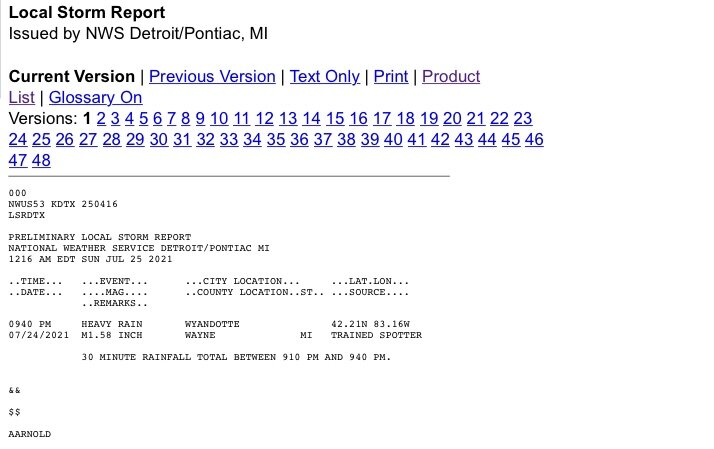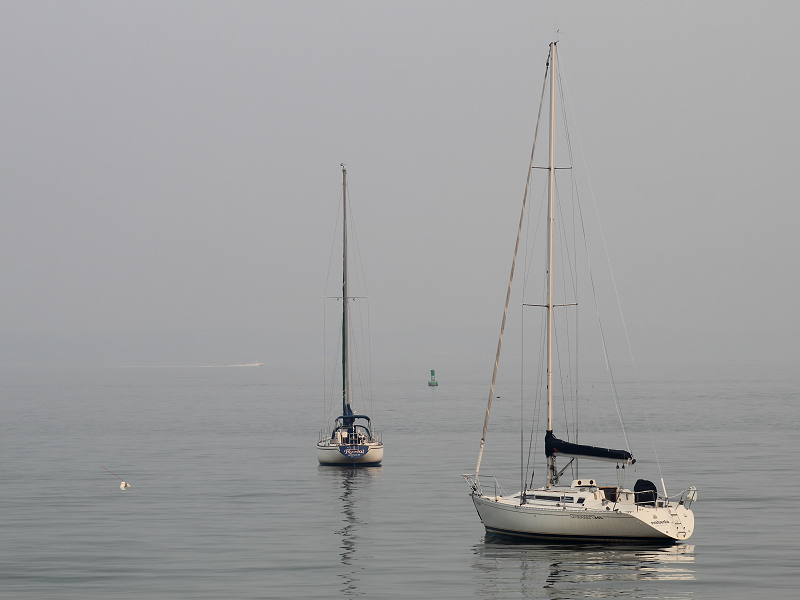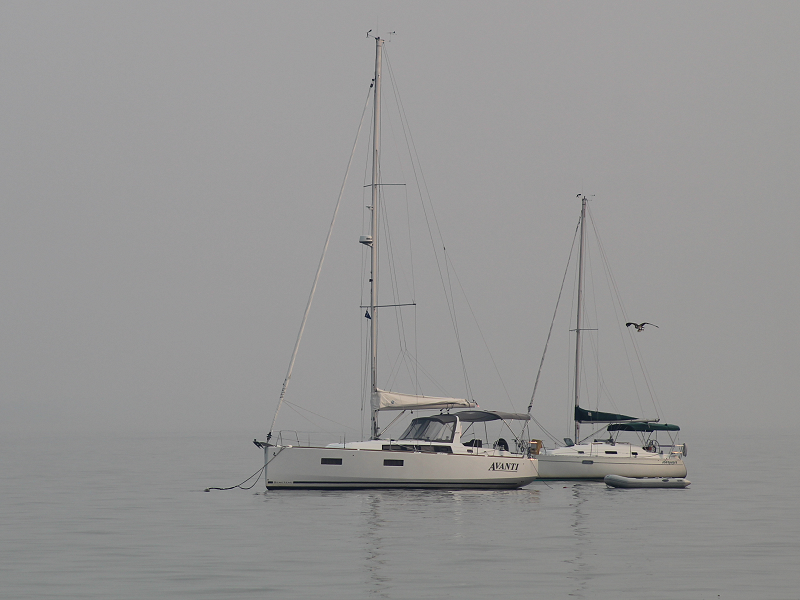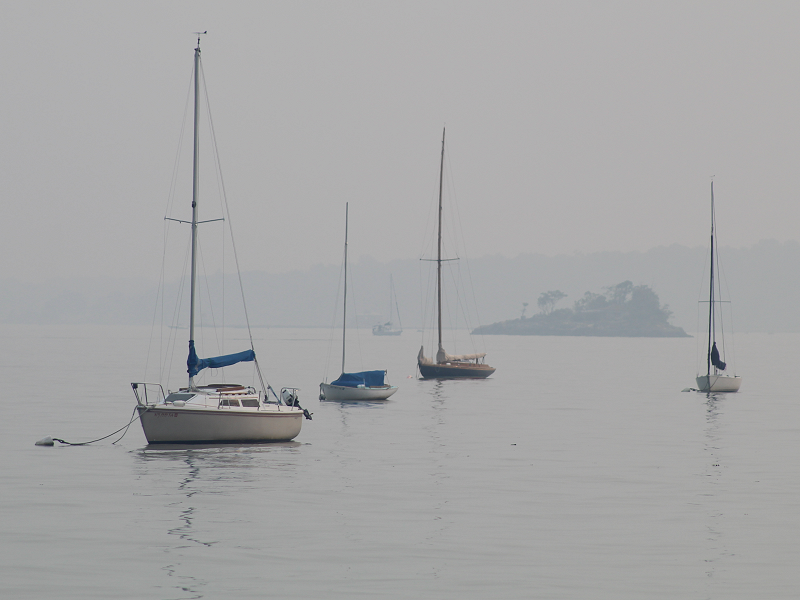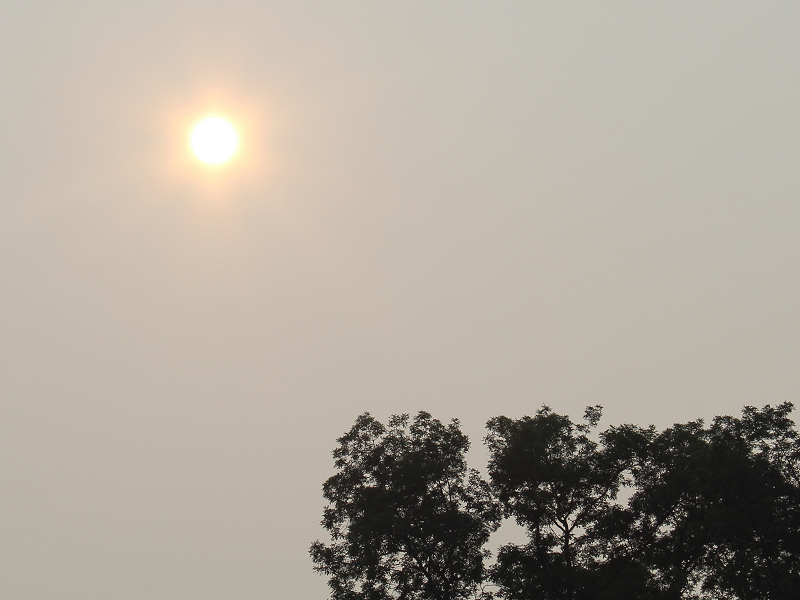-
Posts
23,372 -
Joined
Content Type
Profiles
Blogs
Forums
American Weather
Media Demo
Store
Gallery
Everything posted by donsutherland1
-
Morning thoughts… It will mostly cloudy today with showers and thunderstorms. Some of the rain could be heavy. A general 0.50”-1.00” rainfall is likely with some locally higher amounts. Temperatures will likely reach mainly the upper 70s and lower 80s. Likely high temperatures around the region include: New York City (Central Park): 77° Newark: 80° Philadelphia: 82° Normals: New York City: 30-Year: 84.9°; 15-Year: 85.9° Newark: 30-Year: 86.6°; 15-Year: 87.9° Philadelphia: 30-Year: 87.5°; 15-Year: 88.4° Cooler than normal conditions will likely prevail through the weekend.
- 1,188 replies
-
- 3
-

-
Showers and thundershowers are possible tomorrow. Some of the rain could be heavy. That will add to the 10.62" of rain that has already fallen at Central Park making July 2021 the 3rd wettest July on record. At present, there is an implied 67% probability that New York City will go on to record 50.00" or more of precipitation this year. July will likely end with an unseasonable push of cool air. Temperatures Saturday morning will likely fall into the 50s outside New York City. Even as an unseasonably cool air mass pushes into parts of the Northeast, record-breaking heat could develop in northwestern Canada. That heat will likely persist through the upcoming weekend. The ENSO Region 1+2 anomaly was +0.6°C and the Region 3.4 anomaly was -0.5°C for the week centered around July 21. For the past six weeks, the ENSO Region 1+2 anomaly has averaged 0.33°C and the ENSO Region 3.4 anomaly has averaged -0.20°C. Neutral ENSO conditions will likely prevail through August. The SOI was +1.05 today. The preliminary Arctic Oscillation (AO) figure was -1.070 today. On July 26 the MJO was in Phase 6 at an amplitude of 1.290 (RMM). The July 25-adjusted amplitude was 1.205 (RMM). In late April, the MJO moved through Phase 8 at an extreme amplitude (+3.000 or above). Only February 25, 1988 and March 18-19, 2015 had a higher amplitude at Phase 8. Both 1988 and 2015 went on to have an exceptionally warm July-August period. July-August 1988 had a mean temperature of 79.1°, which ranked 4th highest for that two-month period. July-August 2015 had a mean temperature of 78.9°, which ranked 5th highest for that two-month period. September 2015 was also the warmest September on record. The MJO's extreme passage through Phase 8 could provide the first hint of a hot summer. Since 1896, 76% of years that saw Phoenix reach 115° or above in June, as occurred this year, had a warmer than July-August in the Middle Atlantic region. The ratio of top 30 July-August temperatures relative to bottom 30 temperatures was 6:1 in favor of the warmth. Overall, the ingredients continue to fall into place for a warmer than normal to potentially hot summer. Based on sensitivity analysis applied to the latest guidance, there is an implied near 100% probability that New York City will have a cooler than normal July (1991-2020 normal). July will likely finish with a mean temperature near 76.1° (1.4° below normal).
- 1,188 replies
-
Morning thoughts… It will become partly to mostly sunny today. It will also be cooler than yesterday with high temperatures mainly in the lower and middle 80s. Likely high temperatures around the region include: New York City (Central Park): 82° Newark: 86° Philadelphia: 87° Normals: New York City: 30-Year: 85.0°; 15-Year: 86.0° Newark: 30-Year: 86.6°; 15-Year: 88.0° Philadelphia: 30-Year: 87.6°; 15-Year: 88.5° Cooler than normal conditions will likely prevail through the weekend.
- 1,188 replies
-
Temperatures rose into the upper 80s and lower 90s across the region today. 90° Days for Select Cities (through July 27): Albany: 4 (2020: 13 days; 5-Year Average: 13.6 days) Allentown: 17 (2020: 24 days; 5-Year Average: 27.6 days) Baltimore: 32 (2020: 46 days; 5-Year Average: 44.6 days) Boston: 15 (2020: 14 days; 5-Year Average: 17.2 days) Bridgeport: 8 (2020: 11 days; 5-Year Average: 13.4 days) Burlington: 7 (2020: 20 days; 5-Year Average: 13.0 days) Harrisburg: 21 (2020: 35 days; 5-Year Average: 30.6 days) Hartford: 16 (2020: 39 days; 5-Year Average: 29.0 days) Islip: 3 (2020: 8 days; 5-Year Average: 9.4 days) New York City-JFK: 6 (2020: 12 days; 5-Year Average: 10.2 days) New York City-LGA: 17 (2020: 34 days; 5-Year Average: 29.4 days) New York City-NYC: 12 (2020: 20 days; 5-Year Average: 18.2 days) Newark: 27 (2020: 31 days; 5-Year Average: 31.2 days) Philadelphia: 22 (2020: 36 days; 5-Year Average: 34.6 days) Scranton: 12 (2020: 25 days; 5-Year Average: 16.4 days) Washington, DC: 28 (2020: 46 days; 5-Year Average: 50.8 days) New York City-Newark Average: 16 (2020: 22 days) ...Expected: 17 (based on regression equation tied to JFK-LGA-EWR data) Out West, record temperatures were reported in a number of locations. Records included: Billings: 106° (old record: 103°, 1935 and 1947) Casper: 100° (old record: 99°, 2008) Rapid City: 107° (old record: 104°, 1987) Meanwhile, from 4 pm - 5 pm MST, Tucson picked up 1.27" of rain. Through 5:20 pm MST, Tucson had picked up 1.29" of rain, bringing the monthly total to 7.08". That makes July 2021 the wettest July on record in Tucson. The old record was 6.80", which was set in 2017. July 2021 is also Tucson's second wettest month on record. A strong cold front will cross the region tonight the remainder of the month will be cooler than normal. Showers and thundershowers are possible tonight and again on Thursday. The month could end with an unseasonable push of cool air. Even as an unseasonably cool air mass pushes into parts of the Northeast, record-breaking heat could develop in northwestern Canada. That heat will likely persist through the upcoming weekend. The ENSO Region 1+2 anomaly was +0.6°C and the Region 3.4 anomaly was -0.5°C for the week centered around July 21. For the past six weeks, the ENSO Region 1+2 anomaly has averaged 0.33°C and the ENSO Region 3.4 anomaly has averaged -0.20°C. Neutral ENSO conditions will likely prevail through August. The SOI was +10.71 today. The preliminary Arctic Oscillation (AO) figure was -0.917 today. On July 25 the MJO was in Phase 6 at an amplitude of 1.186 (RMM). The July 24-adjusted amplitude was 1.199 (RMM). In late April, the MJO moved through Phase 8 at an extreme amplitude (+3.000 or above). Only February 25, 1988 and March 18-19, 2015 had a higher amplitude at Phase 8. Both 1988 and 2015 went on to have an exceptionally warm July-August period. July-August 1988 had a mean temperature of 79.1°, which ranked 4th highest for that two-month period. July-August 2015 had a mean temperature of 78.9°, which ranked 5th highest for that two-month period. September 2015 was also the warmest September on record. The MJO's extreme passage through Phase 8 could provide the first hint of a hot summer. Since 1896, 76% of years that saw Phoenix reach 115° or above in June, as occurred this year, had a warmer than July-August in the Middle Atlantic region. The ratio of top 30 July-August temperatures relative to bottom 30 temperatures was 6:1 in favor of the warmth. Overall, the ingredients continue to fall into place for a warmer than normal to potentially hot summer. Based on sensitivity analysis applied to the latest guidance, there is an implied 96% probability that New York City will have a cooler than normal July (1991-2020 normal). July will likely finish with a mean temperature near 76.3° (1.2° below normal).
- 1,188 replies
-
- 2
-

-

-
Yesterday was 90. It appears that JFK fell short today.
- 1,188 replies
-
- 1
-

-
Morning thoughts… Today will become mostly sunny and very warm. Some wildfire smoke could dim the sun. Temperatures will rise to the upper 80s and lower 90s in most of the region. A few places could top out in the middle 90s. Likely high temperatures around the region include: New York City (Central Park): 90° Newark: 95° Philadelphia: 94° Normals: New York City: 30-Year: 85.0°; 15-Year: 86.1° Newark: 30-Year: 86.7°; 15-Year: 88.1° Philadelphia: 30-Year: 87.6°; 15-Year: 88.6° The heat will break tomorrow and cooler than normal conditions will likely prevail through the weekend.
- 1,188 replies
-
- 2
-

-
Under mostly sunny skies, temperatures rose into the 90s in many parts of the region. Central Park fell short of 90°, but that was likely due to thick foliage. Based on a statistical regression equation based on nearby locations, Central Park would likely have hit 91° had it not been for the trees. 90° temperatures included: Allentown: 90°; Baltimore: 97°; Boston: 93°; Bridgeport: 90°; Harrisburg: 90°; New York City-JFK: 90°; New York City-LGA: 90°; Newark: 93°; Philadelphia: 91°; and, Washington, DC: 97°. 90° Days for Select Cities (through July 26): Albany: 4 (2020: 13 days; 5-Year Average: 13.6 days) Allentown: 16 (2020: 24 days; 5-Year Average: 27.6 days) Baltimore: 31 (2020: 46 days; 5-Year Average: 44.6 days) Boston: 15 (2020: 14 days; 5-Year Average: 17.2 days) Bridgeport: 8 (2020: 11 days; 5-Year Average: 13.4 days) Burlington: 7 (2020: 20 days; 5-Year Average: 13.0 days) Harrisburg: 20 (2020: 35 days; 5-Year Average: 30.6 days) Hartford: 15 (2020: 39 days; 5-Year Average: 29.0 days) Islip: 3 (2020: 8 days; 5-Year Average: 9.4 days) New York City-JFK: 6 (2020: 12 days; 5-Year Average: 10.2 days) New York City-LGA: 16 (2020: 34 days; 5-Year Average: 29.4 days) New York City-NYC: 12 (2020: 20 days; 5-Year Average: 18.2 days) Newark: 26 (2020: 31 days; 5-Year Average: 31.2 days) Philadelphia: 21 (2020: 36 days; 5-Year Average: 34.6 days) Scranton: 12 (2020: 25 days; 5-Year Average: 16.4 days) Washington, DC: 27 (2020: 46 days; 5-Year Average: 50.8 days) New York City-Newark Average: 15 (2020: 22 days) ...Expected: 16 (based on regression equation tied to JFK-LGA-EWR data) Tomorrow will be another very warm day with high temperatures reaching the upper 80s and lower 90s in much of the region. Some smoke from the western wildfires could again move through the region. A strong cold front will cross the region on Wednesday and the remainder of the month will be cooler than normal. The month could end with an unseasonable push of cool air. Even as an unseasonably cool air mass pushes into parts of the Northeast, record-breaking heat could develop in northwestern Canada. That heat will likely persist through the upcoming weekend. The ENSO Region 1+2 anomaly was +0.6°C and the Region 3.4 anomaly was -0.5°C for the week centered around July 21. For the past six weeks, the ENSO Region 1+2 anomaly has averaged 0.33°C and the ENSO Region 3.4 anomaly has averaged -0.20°C. Neutral ENSO conditions will likely prevail through August. The SOI was +14.59 today. The preliminary Arctic Oscillation (AO) figure was -0.194 today. On July 22 the MJO was in Phase 6 at an amplitude of 1.190 (RMM). The July 21-adjusted amplitude was 1.390 (RMM). In late April, the MJO moved through Phase 8 at an extreme amplitude (+3.000 or above). Only February 25, 1988 and March 18-19, 2015 had a higher amplitude at Phase 8. Both 1988 and 2015 went on to have an exceptionally warm July-August period. July-August 1988 had a mean temperature of 79.1°, which ranked 4th highest for that two-month period. July-August 2015 had a mean temperature of 78.9°, which ranked 5th highest for that two-month period. September 2015 was also the warmest September on record. The MJO's extreme passage through Phase 8 could provide the first hint of a hot summer. Since 1896, 76% of years that saw Phoenix reach 115° or above in June, as occurred this year, had a warmer than July-August in the Middle Atlantic region. The ratio of top 30 July-August temperatures relative to bottom 30 temperatures was 6:1 in favor of the warmth. Overall, the ingredients continue to fall into place for a warmer than normal to potentially hot summer. Based on sensitivity analysis applied to the latest guidance, there is an implied 93% probability that New York City will have a cooler than normal July (1991-2020 normal). July will likely finish with a mean temperature near 76.3° (1.2° below normal).
- 1,188 replies
-
Yes. And it was warmer than Central Park.
- 1,188 replies
-
- 1
-

-
If the sea breeze can be held off, there is a chance of that happening. That outcome is probably more likely today than it is tomorrow.
- 1,188 replies
-
- 1
-

-
Morning thoughts… Today will become mostly sunny and very warm. Temperatures will rise to the upper 80s and lower 90s in most of the region. Likely high temperatures around the region include: New York City (Central Park): 89° Newark: 93° Philadelphia: 93° Normals: New York City: 30-Year: 85.1°; 15-Year: 86.2° Newark: 30-Year: 86.8°; 15-Year: 88.2° Philadelphia: 30-Year: 87.7°; 15-Year: 88.7° Tomorrow will be partly cloudy and hot.
- 1,188 replies
-
A period of above to much above normal temperatures will develop starting tomorrow. Several days of above to much above normal readings are likely through mid-week. Some smoke from the western wildfires could again move through the region. The ENSO Region 1+2 anomaly was +0.4°C and the Region 3.4 anomaly was -0.1°C for the week centered around July 14. For the past six weeks, the ENSO Region 1+2 anomaly has averaged 0.23°C and the ENSO Region 3.4 anomaly has averaged -0.12°C. Neutral ENSO conditions will likely prevail through August. The SOI was +15.94 today. The preliminary Arctic Oscillation (AO) figure was +0.422 today. On July 21 the MJO was in Phase 6 at an amplitude of 1.403 (RMM). The July 20-adjusted amplitude was 1.573 (RMM). In late April, the MJO moved through Phase 8 at an extreme amplitude (+3.000 or above). Only February 25, 1988 and March 18-19, 2015 had a higher amplitude at Phase 8. Both 1988 and 2015 went on to have an exceptionally warm July-August period. July-August 1988 had a mean temperature of 79.1°, which ranked 4th highest for that two-month period. July-August 2015 had a mean temperature of 78.9°, which ranked 5th highest for that two-month period. September 2015 was also the warmest September on record. The MJO's extreme passage through Phase 8 could provide the first hint of a hot summer. Since 1896, 76% of years that saw Phoenix reach 115° or above in June, as occurred this year, had a warmer than July-August in the Middle Atlantic region. The ratio of top 30 July-August temperatures relative to bottom 30 temperatures was 6:1 in favor of the warmth. Overall, the ingredients continue to fall into place for a warmer than normal to potentially hot summer. Based on sensitivity analysis applied to the latest guidance, there is an implied 87% probability that New York City will have a cooler than normal July (1991-2020 normal). July will likely finish with a mean temperature near 76.5° (1.0° below normal).
- 1,188 replies
-
Morning thoughts… Earlier this morning, New York City picked up 0.49”. That brought the July total to 9.70”. As a result 2021 moved past 1897 when 9.56” of rain fell to become the 3rd wettest July on record. Today will be variably cloudy and more humid. Showers and thundershowers are possible this afternoon and evening. Temperatures will rise to the middle and upper 80s in most of the region. Likely high temperatures around the region include: New York City (Central Park): 83° Newark: 89° Philadelphia: 88° Normals: New York City: 30-Year: 85.1°; 15-Year: 86.2° Newark: 30-Year: 86.9°; 15-Year: 88.3° Philadelphia: 30-Year: 87.8°; 15-Year: 88.8° Tomorrow will be partly cloudy and very warm.
- 1,188 replies
-
- 1
-

-
-
A period of above to much above normal temperatures will develop starting tomorrow. Several days of above to much above normal readings are likely through mid-week. The ENSO Region 1+2 anomaly was +0.4°C and the Region 3.4 anomaly was -0.1°C for the week centered around July 14. For the past six weeks, the ENSO Region 1+2 anomaly has averaged 0.23°C and the ENSO Region 3.4 anomaly has averaged -0.12°C. Neutral ENSO conditions will likely prevail through August. The SOI was +16.19 today. The preliminary Arctic Oscillation (AO) figure was +0.685 today. On July 21 the MJO was in Phase 5 at an amplitude of 1.576 (RMM). The July 20-adjusted amplitude was 1.726 (RMM). In late April, the MJO moved through Phase 8 at an extreme amplitude (+3.000 or above). Only February 25, 1988 and March 18-19, 2015 had a higher amplitude at Phase 8. Both 1988 and 2015 went on to have an exceptionally warm July-August period. July-August 1988 had a mean temperature of 79.1°, which ranked 4th highest for that two-month period. July-August 2015 had a mean temperature of 78.9°, which ranked 5th highest for that two-month period. September 2015 was also the warmest September on record. The MJO's extreme passage through Phase 8 could provide the first hint of a hot summer. Since 1896, 76% of years that saw Phoenix reach 115° or above in June, as occurred this year, had a warmer than July-August in the Middle Atlantic region. The ratio of top 30 July-August temperatures relative to bottom 30 temperatures was 6:1 in favor of the warmth. Overall, the ingredients continue to fall into place for a warmer than normal to potentially hot summer. Based on sensitivity analysis applied to the latest guidance, there is an implied 78% probability that New York City will have a cooler than normal July (1991-2020 normal). July will likely finish with a mean temperature near 76.7° (0.8° below normal).
- 1,188 replies
-
- 1,188 replies
-
- 8
-

-

-
Morning thoughts… Today will be partly sunny and a bit warmer than yesterday. Humidity will still be fairly low and temperatures will rise to the lower and middle 80s in most of the region. Likely high temperatures around the region include: New York City (Central Park): 82° Newark: 86° Philadelphia: 86° Normals: New York City: 30-Year: 85.2°; 15-Year: 86.3° Newark: 30-Year: 86.9°; 15-Year: 88.3° Philadelphia: 30-Year: 87.8°; 15-Year: 88.9° Tomorrow will be variably cloudy and warmer. A shower or thundershower is possible. In the Southwest, a retrograding system will produce additional significant monsoon rainfall.
- 1,188 replies
-
- 1
-

-
A period of mainly dry conditions and somewhat cooler than normal temperatures will continue into the weekend. Afterward, there are growing model indications that a period of above to much above normal temperatures could develop. Tomorrow will be partly sunny with temperatures in the lower and middle 80s. However, the heat will be creeping northward and the temperature could reach or exceed 90° in Baltimore and/or Washington, DC. Out West, the ongoing monsoon event is the big weather story. Through 8 pm, Phoenix had received 0.79" of rain, which exceeded the daily record of 0.41" from 2002. Even more impressive, the high temperature through 8 pm was 83°, which would be the coldest maximum temperature since July 31, 1964. In addition, several July hourly low temperature marks were set. In the long-range, August could wind up warmer to perhaps much warmer than normal based on the evolution of the MJO. The MJO was in Phase 1 with an amplitude between 1.500 and 2.000 on multiple days during the June 20-30 period. There were 8 prior cases similar to 2021. mean temperature for August was 77.1° following such cases. The 1991-20 mean temperature for was 76.0° for August. 88% of the August cases were warmer than the 1991-20 mean temperatures. Early prospects for a very warm second half of July have diminished on account of the MJO's having moved back into Phase 2 from Phase 3. The ENSO Region 1+2 anomaly was +0.4°C and the Region 3.4 anomaly was -0.1°C for the week centered around July 14. For the past six weeks, the ENSO Region 1+2 anomaly has averaged 0.23°C and the ENSO Region 3.4 anomaly has averaged -0.12°C. Neutral ENSO conditions will likely prevail through August. The SOI was +17.85 today. The preliminary Arctic Oscillation (AO) figure was +0.743 today. On July 20 the MJO was in Phase 5 at an amplitude of 1.738 (RMM). The July 19-adjusted amplitude was 1.805 (RMM). In late April, the MJO moved through Phase 8 at an extreme amplitude (+3.000 or above). Only February 25, 1988 and March 18-19, 2015 had a higher amplitude at Phase 8. Both 1988 and 2015 went on to have an exceptionally warm July-August period. July-August 1988 had a mean temperature of 79.1°, which ranked 4th highest for that two-month period. July-August 2015 had a mean temperature of 78.9°, which ranked 5th highest for that two-month period. September 2015 was also the warmest September on record. The MJO's extreme passage through Phase 8 could provide the first hint of a hot summer. Since 1896, 76% of years that saw Phoenix reach 115° or above in June, as occurred this year, had a warmer than July-August in the Middle Atlantic region. The ratio of top 30 July-August temperatures relative to bottom 30 temperatures was 6:1 in favor of the warmth. Overall, the ingredients continue to fall into place for a warmer than normal to potentially hot summer. Based on sensitivity analysis applied to the latest guidance, there is an implied 69% probability that New York City will have a cooler than normal July (1991-2020 normal). July will likely finish with a mean temperature near 76.8° (0.7° below normal).
- 1,188 replies
-
Morning thoughts… Today will be partly sunny and comfortable. Humidity will be low and temperatures will rise to the lower and perhaps middle 80s in most of the region. Likely high temperatures around the region include: New York City (Central Park): 82° Newark: 85° Philadelphia: 84° Normals: New York City: 30-Year: 85.2°; 15-Year: 86.3° Newark: 30-Year: 87.0°; 15-Year: 88.4° Philadelphia: 30-Year: 87.9°; 15-Year: 89.0° Tomorrow will be partly sunny and continued pleasant. In the Southwest, a retrograding system will produce significant monsoon rainfall, with the heaviest amounts falling through tomorrow morning. Both Phoenix and Tucson could pick up 0.50”-1.00” rain during this by the end of tomorrow. Already, Phoenix has received 0.21” of rain.
- 1,188 replies
-
A period of mainly dry conditions and somewhat cooler than normal temperatures will continue into the weekend. Afterward, there are growing model indications that a period of above to much above normal temperatures could develop. In the long-range, August could wind up warmer to perhaps much warmer than normal based on the evolution of the MJO. The MJO was in Phase 1 with an amplitude between 1.500 and 2.000 on multiple days during the June 20-30 period. There were 8 prior cases similar to 2021. mean temperature for August was 77.1° following such cases. The 1991-20 mean temperature for was 76.0° for August. 88% of the August cases were warmer than the 1991-20 mean temperatures. Early prospects for a very warm second half of July have diminished on account of the MJO's having moved back into Phase 2 from Phase 3. The ENSO Region 1+2 anomaly was +0.4°C and the Region 3.4 anomaly was -0.1°C for the week centered around July 14. For the past six weeks, the ENSO Region 1+2 anomaly has averaged 0.23°C and the ENSO Region 3.4 anomaly has averaged -0.12°C. Neutral ENSO conditions will likely prevail through August. The SOI was +16.50 today. The preliminary Arctic Oscillation (AO) figure was +0.951 today. On July 20 the MJO was in Phase 5 at an amplitude of 1.812 (RMM). The July 19-adjusted amplitude was 1.718 (RMM). In late April, the MJO moved through Phase 8 at an extreme amplitude (+3.000 or above). Only February 25, 1988 and March 18-19, 2015 had a higher amplitude at Phase 8. Both 1988 and 2015 went on to have an exceptionally warm July-August period. July-August 1988 had a mean temperature of 79.1°, which ranked 4th highest for that two-month period. July-August 2015 had a mean temperature of 78.9°, which ranked 5th highest for that two-month period. September 2015 was also the warmest September on record. The MJO's extreme passage through Phase 8 could provide the first hint of a hot summer. Since 1896, 76% of years that saw Phoenix reach 115° or above in June, as occurred this year, had a warmer than July-August in the Middle Atlantic region. The ratio of top 30 July-August temperatures relative to bottom 30 temperatures was 6:1 in favor of the warmth. Overall, the ingredients continue to fall into place for a warmer than normal to potentially hot summer. Based on sensitivity analysis applied to the latest guidance, there is an implied 68% probability that New York City will have a cooler than normal July (1991-2020 normal). July will likely finish with a mean temperature near 76.8° (0.7° below normal).
- 1,188 replies
-
Morning thoughts… Today will be partly sunny and refreshing. Humidity will be low and temperatures will rise to the lower and perhaps middle 80s in most of the region. Likely high temperatures around the region include: New York City (Central Park): 82° Newark: 87° Philadelphia: 83° Normals: New York City: 30-Year: 85.2°; 15-Year: 86.4° Newark: 30-Year: 87.1°; 15-Year: 88.5° Philadelphia: 30-Year: 87.9°; 15-Year: 89.0° Tomorrow will be partly sunny and pleasant. In the Southwest, a retrograding system will produce significant monsoon rainfall, with the heaviest amounts falling between tomorrow night and Saturday morning. Both Phoenix and Tucson could pick up 0.50”-1.00” rain during this period.
- 1,188 replies
-
- 1
-

-
Following the cold front's passage, a period of mainly dry conditions and somewhat cooler than normal temperatures will continue into the weekend. Afterward, there are growing model indications that a period of above to much above normal temperatures could develop. In the long-range, August could wind up warmer to perhaps much warmer than normal based on the evolution of the MJO. The MJO was in Phase 1 with an amplitude between 1.500 and 2.000 on multiple days during the June 20-30 period. There were 8 prior cases similar to 2021. mean temperature for August was 77.1° following such cases. The 1991-20 mean temperature for was 76.0° for August. 88% of the August cases were warmer than the 1991-20 mean temperatures. Early prospects for a very warm second half of July have diminished on account of the MJO's having moved back into Phase 2 from Phase 3. The ENSO Region 1+2 anomaly was +0.4°C and the Region 3.4 anomaly was -0.1°C for the week centered around July 14. For the past six weeks, the ENSO Region 1+2 anomaly has averaged 0.23°C and the ENSO Region 3.4 anomaly has averaged -0.12°C. Neutral ENSO conditions will likely prevail through August. The SOI was +8.80 today. The preliminary Arctic Oscillation (AO) figure was +0.938 today. On July 19 the MJO was in Phase 5 at an amplitude of 1.718 (RMM). The July 18-adjusted amplitude was 1.711 (RMM). In late April, the MJO moved through Phase 8 at an extreme amplitude (+3.000 or above). Only February 25, 1988 and March 18-19, 2015 had a higher amplitude at Phase 8. Both 1988 and 2015 went on to have an exceptionally warm July-August period. July-August 1988 had a mean temperature of 79.1°, which ranked 4th highest for that two-month period. July-August 2015 had a mean temperature of 78.9°, which ranked 5th highest for that two-month period. September 2015 was also the warmest September on record. The MJO's extreme passage through Phase 8 could provide the first hint of a hot summer. Since 1896, 76% of years that saw Phoenix reach 115° or above in June, as occurred this year, had a warmer than July-August in the Middle Atlantic region. The ratio of top 30 July-August temperatures relative to bottom 30 temperatures was 6:1 in favor of the warmth. Overall, the ingredients continue to fall into place for a warmer than normal to potentially hot summer. Based on sensitivity analysis applied to the latest guidance, there is an implied 64% probability that New York City will have a cooler than normal July (1991-2020 normal). July will likely finish with a mean temperature near 76.9° (0.6° below normal).
- 1,188 replies
-
Morning thoughts… Smoke from the western wildfires will again dim the sunshine. It will be hazy and very warm with highs in middle and upper 80s in most of the region. Parts of the area could see a thunderstorm during the afternoon or evening as a cold front pushes across the region. Likely high temperatures around the region include: New York City (Central Park): 84° Newark: 88° Philadelphia: 87° Normals: New York City: 30-Year: 85.2°; 15-Year: 86.4° Newark: 30-Year: 87.1°; 15-Year: 88.5° Philadelphia: 30-Year: 88.0°; 15-Year: 89.1° Tomorrow will be partly sunny and somewhat cooler.
- 1,188 replies
-
Tomorrow will be another very warm day with temperatures rising into upper 80s and lower 90s. The day could end with thunderstorms and heavy downpours as a cold front moves across the region. Afterward, a period of mainly dry conditions and somewhat cooler than normal temperatures will continue into the weekend. Afterward, there are growing model indications that a period of above to much above normal temperatures could develop. In the long-range, August could wind up warmer to perhaps much warmer than normal based on the evolution of the MJO. The MJO was in Phase 1 with an amplitude between 1.500 and 2.000 on multiple days during the June 20-30 period. There were 8 prior cases similar to 2021. mean temperature for August was 77.1° following such cases. The 1991-20 mean temperature for was 76.0° for August. 88% of the August cases were warmer than the 1991-20 mean temperatures. Early prospects for a very warm second half of July have diminished on account of the MJO's having moved back into Phase 2 from Phase 3. The ENSO Region 1+2 anomaly was +0.4°C and the Region 3.4 anomaly was -0.1°C for the week centered around July 14. For the past six weeks, the ENSO Region 1+2 anomaly has averaged 0.23°C and the ENSO Region 3.4 anomaly has averaged -0.12°C. Neutral ENSO conditions will likely prevail through August. The SOI was +8.86 today. The preliminary Arctic Oscillation (AO) figure was +0.881 today. On July 18 the MJO was in Phase 5 at an amplitude of 1.707 (RMM). The July 17-adjusted amplitude was 1.320 (RMM). In late April, the MJO moved through Phase 8 at an extreme amplitude (+3.000 or above). Only February 25, 1988 and March 18-19, 2015 had a higher amplitude at Phase 8. Both 1988 and 2015 went on to have an exceptionally warm July-August period. July-August 1988 had a mean temperature of 79.1°, which ranked 4th highest for that two-month period. July-August 2015 had a mean temperature of 78.9°, which ranked 5th highest for that two-month period. September 2015 was also the warmest September on record. The MJO's extreme passage through Phase 8 could provide the first hint of a hot summer. Since 1896, 76% of years that saw Phoenix reach 115° or above in June, as occurred this year, had a warmer than July-August in the Middle Atlantic region. The ratio of top 30 July-August temperatures relative to bottom 30 temperatures was 6:1 in favor of the warmth. Overall, the ingredients continue to fall into place for a warmer than normal to potentially hot summer. Based on sensitivity analysis applied to the latest guidance, there is an implied 61% probability that New York City will have a cooler than normal July (1991-2020 normal). July will likely finish with a mean temperature near 77.0° (0.5° below normal).
- 1,188 replies
-
Four photos from early this evening. visibility was probably around 2 1/2 miles on the Long Island Sound due to the smoke and haze.
- 1,188 replies
-
- 4
-

-
This is a terrific photo and the reflection is great.
- 1,188 replies
-
- 3
-

-




